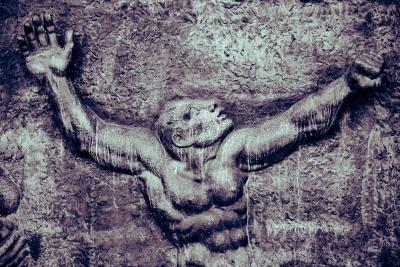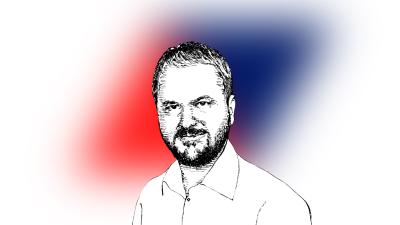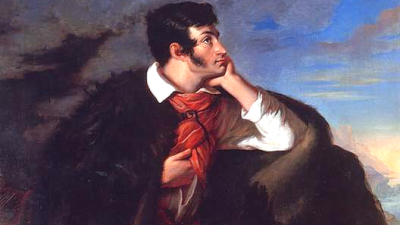We are used to understanding political conflict in a restrained, rational and liberal way. According to this interpretation, which seems to be the dominant one, disputes, when they occur, are the simple consequences of conflicting interests and rationales and represent that contradiction which, if not in its entirety, is at least in large part realised by the disputing parties.
These clashes of interests are natural and unavoidable, and one of the tasks of the legal order - both those within a state and those worked out by international agreements - is to create a framework within which these contradictions can clash without harming the whole. Indeed, the most frightening form of conflict that can be imagined on the basis of this approach is that which occurs when nothing normalises a political dispute. It is a war between everyone and everyone, in which "nothing can be unjust": "The concepts of what is right and wrong, of justice and injustice, have no place here. Where there is not one common power over men, there is no law; and where there is no law, there is no injustice." The Hobbesian state of nature is the end to which this vision of political conflict is capable of reaching - it represents the highest extreme horror that can be thought of on the basis of a liberal vision of order, for it means going beyond order itself.
It must be acknowledged that the described way of understanding political conflict works in most of the cases we deal with on a daily basis. However, there are some clashes that definitely go beyond its logic and for this reason force us to replace it with a different approach. These are those conflicts in which it is not the contradiction of interests and reasons that manifests itself, but the fundamental divergence of two orders. One of the most distinctive features of the 20th century is that it abounded in such clashes. Hobbes thought that in the worst of conceivable conflicts there could be no justice or injustice. However, even more terrible wars followed, in which the right to exist was denied to another not because of a lack of law, but because of the existence of a higher law - a higher law than can be read in the codes. The instrument of this higher law was to be a totalitarian power that wanted to establish the direct rule of justice on earth: "Totalitarian power proclaims the monstrous but apparently irrefutable claim that not only is it not 'lawless', but that it reaches back to the sources of authority from which the laws of state have taken their ultimate sanction, that not only is it not arbitrary, but that it shows greater obedience to superhuman forces than any government hitherto in existence, and that not only does it not exercise power in the interests of one man, but that it is most completely prepared to sacrifice the important immediate interests of all men for the sake of fulfilling what it considers to be the law of history or the law of nature." The place of the war of everyone against everyone has been taken by total terror, which, in Arendt's words, was to make it possible for "the forces of nature or history, unhampered by any spontaneous action of man, to act freely on humanity."
When we are confronted with such a conflict, in which the fundamental divergence of two orders manifests itself - we may call it a conflict of a higher order - we need a different mode of explanation from the dominant one in order to grasp its nature. For we see that it is impossible to stop at the clash of interests and rationales when describing it. Two formations stand opposite each other and we ask what they represent, what forces they represent. It might seem that if, according to the words of Arendt quoted above, a totalitarian government claims to speak on behalf of some higher, superior justice, then there are some - even if distorted - reasons behind this government. This, however, is not the case. Since the reborn Poland was invaded by those who spoke of the right of nations to self-determination , this cannot be about reasons, even in some loftier than commonly accepted sense. Justice conceived ontologically, seen as a sun rising and appearing on the horizon, takes us beyond the order of interests and rationales, because it takes us beyond what is related to human contingency and particularity in general: "[Totalitarian politics - T.H.] can do without consensus iuris because it promises to make the observance of law independent of all actions and of the will of man; and it promises justice on earth because it claims that humanity itself will be the embodiment of law."
Apart from its political and military aspects, the Polish-Bolshevik war also has this dimension: it is a spiritual event, a clash of civilisational significance. It does not lend itself to be couched solely in terms of conflicts of interest and rationale. Against Poland was Pankracy himself (as the protagonist of my text noted), who presented himself as the dawn - the dawn of a new humanity. Asking questions about the spiritual and civilisational meaning of the events of 1920 not only does not lead to their mythologisation, but is a simple consequence of their radical inadequacy, their alienation from this basic way of explaining political conflicts that we adopt on a daily basis.
In order to see what shape such an interpretation, going beyond the dominant paradigm of understanding political conflicts, can take, and how significant its results can be, it is worth reaching out to the current of reflection created by those representatives of Polish intellectual culture who, both during the Polish-Bolshevik War and immediately before and after it, undertook a reflection on the essence of Bolshevism. One of the most outstanding examples of works produced in this current is Marian Massonius's lecture On Bolshevism, delivered on 21 August 1920 in Poznań. The analyses contained in this text focus on socio-political factors, with Massonius stating in the final part of the text that such a perspective is not sufficient, and supplements it with considerations of a messianic nature .
According to Massonius, who in his reflections referred to his own experience of having twice lived 'in a country ruled by the Bolsheviks', the overarching aims of Bolshevism are negative. He argues that Bolshevism 'as a concrete phenomenon, lived and felt, is [...] above all an enormous wave of destruction'. Towards the end of his reflections, when the philosopher moves on to formulate thoughts clearly inspired by the ideological heritage of Polish Romanticism and presents Bolshevism as "that force of which Massynisa and Pankracy are the imaginaries in Krasiński's enormous creative idea," firmly defines the point to which Bolshevik rule is aiming and which is to define its essential content: "It is a question of bringing mankind, with the exception of a select fraction of it, to the uttermost disintegration, of transforming state and social organisms into loose collectives, unsupported by God or their own national tradition, materially impoverished, devoid of ideological life, deprived of their own native intelligentsia, capable only of physical labour and incapable of any organised resistance, so jaded that Lassalle's notorious 'bronze law', which has hitherto been mostly the subject of books, pamphlets and articles, becomes a dreadful reality." In order to achieve this goal, Bolshevism makes life a constant struggle for the minimum of existence, carried out, moreover, in a situation of constant danger, as is to be illustrated by the story, quoted by Massonius, of the efforts that the father of a family has to make in order to obtain more than the stipulated quantity of groats.
According to the Polish philosopher, in direct practice Bolshevism appears as a brutal state ideology which seeks to seize power in the state in order to 'make full use of the apparatus of oppression handed down to it by the bourgeois state, and even [...] to sharpen it and increase its burden'. Moreover, the state created by the Bolsheviks not only does not go beyond the existing political relations towards a bright future, but also rejects the achievements of the modern state: "The Soviet state, therefore, is not and is not intended to be a modern, democratic state. On the contrary, it is a state - both as regards the guiding principles of its system and as regards its methods of government - thoroughly and flagrantly reactionary." The Bolsheviks in power inherit and reinforce what, according to Lenin, constitutes the essence of the bourgeois state. They take over, for their own use, that state which they recognise as the apparatus of oppression exerted by the ruling class on the others, in order to achieve nearer and further goals, among which Massonius mentions 'the destruction of the whole hitherto composition of life', 'the rearrangement of classes' and 'the placing at the head of society of a new class, not only the leading class, but in the broadest sense of the term the ruling and abundantly privileged class'. Bolshevism thus implies a specific political strategy aimed at seizing power in order to radically dismantle existing socio-political relations and win dominion for a new privileged class, referred to as the proletariat but, as Massonius notes, having nothing to do with it.
Speaking on behalf of the proletariat is not the only element of the Bolsheviks' ideological identification that is used by them without any connection to its essential content. The characterisation of Bolshevism outlined above leaves no doubt that, despite its declarative links with socialism, it cannot be regarded as a variant of it - for on the one hand it wants to use the state as an instrument of oppression and even to exacerbate that oppression, while on the other hand it seeks to rearrange classes and establish a new ruling class rather than a classless society. The conviction of the fundamental divergence that exists between Bolshevism and socialism appears to be one of Massonius's most significant claims, for it means that Bolshevism demands a separate description, not reducible to the circle of ideas known from the history of socialist thought. The Polish philosopher writes about this difference as follows: "It has been established in our country and abroad that Bolshevism is the extreme left wing of socialism. Well, I think this is not the case. In terms of its ideological and programmatic content, as a social and political direction, it does not even have any connection with socialism, not excluding its most extreme directions. Its factual connection with socialism is unquestionable. But it is limited to the fact that socialism has served for Bolshevism practically as a point of support and a point of departure. [...] Socialism has been a convenient starting point for them [the Bolsheviks - T.H.], but it is by no means a point of arrival'. Nevertheless, the Bolsheviks do not abandon the reference to socialism which is fundamental to their identification. In order to make it possible, they present what Massonius refers to in the above quotation as their 'point of arrival', i.e. the political reality they have produced, as a transitional state stretching between the old and the new order . Bolshevism thus establishes the rule of a permanent transitional state, with further consequences that are particularly evident if we make use of Arendt's analyses when interpreting Massonius' reflections. For the idea of a permanent state of transition means that reality is conceived as being in constant motion, constantly moving towards some goal, which in turn entails an obligation to submit to the laws of this motion.
Massonius' text can be considered pioneering. From today's perspective, one can even see in it one of the first (and perhaps the first) attempts to describe the emerging totalitarianism (although, of course, Massonius did not use this word and had not yet formulated such an issue). When we try to read it in this way, we can understand even better why the philosopher could not agree to explain Bolshevism and its aims by referring to socialism and classifying it as an extreme form of this political position. Bolshevism was something outside the known ideological divisions; it could not be reduced to them. The Polish philosopher regarded it as a force that was to be intuited by mankind from time immemorial , and in Russia it was to take possession of the state apparatus for the first time . However, it could also be conceived of as an emerging, new form of government, as Arendt did in relation to totalitarianism. It is worth emphasising here that the particular significance of Massonius's text can be attributed, among other things, to the fact that, although the Polish philosopher formulated his interpretation caught up in the whirlwind of events, and in the initial period of the formation of the totalitarian state, he included in his reading On Bolshevism intuitions that would recur in the works of key scholars of totalitarian governments and movements - such as, for example, Arendt quoted above.
Massonius's reflections led to the presentation of Bolshevism as an anti-civilisation, a powerful decaying force. Although the Polish philosopher linked the phenomenon of Bolshevism to specific features of Russian culture (such as the rejection of "the very idea and concept of law itself as some kind of fixed principle unstably normalizing life" or that "Russians are deep down a nomadic people," which would explain the destructive impetus of Bolshevism), he at the same time recognised that it could spread to other countries. The view of Bolshevism as a force against the foundations of European civilisation found particularly emphatic expression in Florian Znaniecki's The Decline of Western Civilisation, also written in 1920, in which this eminent sociologist and philosopher presented Bolshevism as "the ultimate expression and test of the power and significance of those anti-cultural aspirations which Western civilisation has not yet managed to tame, and which, in the conditions created by the breaking down of all traditional brakes, have been concentrated as social forces and turned into a mass movement." Znaniecki was convinced that 'despite all the distinctiveness of political and social relations in Russia, the essential factors of the Bolshevik movement exist in every modern society in the West', and presented it as a type and model of modern social upheaval, leading to an irreversible cultural and civilisational regression. Znaniecki's interpretation thus highlighted the universal, supranational character of the possibility that was Bolshevism. Such depictions of Bolshevism as those developed by Massonius and Znaniecki in 1920 (both works appeared in print in 1921) made the Polish-Bolshevik war a clash between civilisation and anti-civilisation, with decaying tendencies against the material and spiritual order of Europe.
The text was first published on the occasion of the 100th anniversary of the Battle of Warsaw in Teologia Polityczna Co Tydzień 2020, no. 228 and is available online at: https://teologiapolityczna.pl/tomasz-herbich-bolszewizm-jako-antycywilizacja-1.












Comments (0)